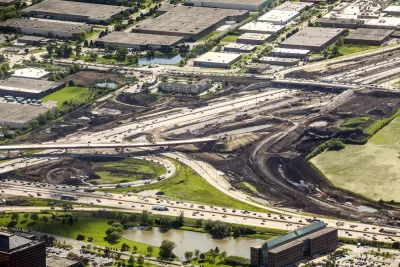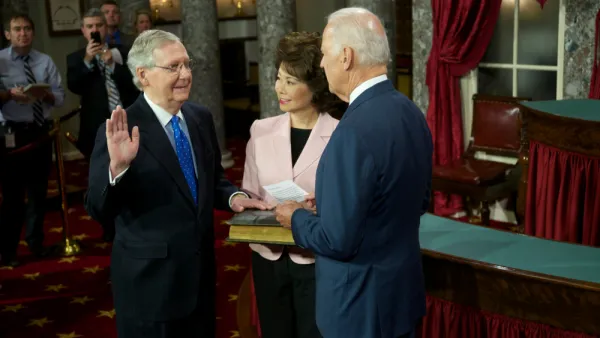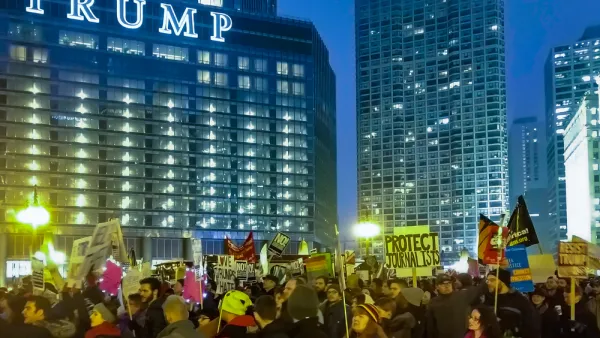President Donald Trump teased the release of his promised $1 trillion infrastructure earlier this month. Here's how a collection of experts reacted to that prospect.

An article for Grist by Nathanael Johnson and Matt Graft surveys a collection of experts on how they would spend the $1 trillion promised by President Trump to fix the nation's infrastructure. According to Johnson and Graft, "just about all" of the surveyed experts "panned Trump's ideas," so the article expresses an awareness that Trump might be over promising on this issue.
The collection of experts includes Lynn Richards, president and CEO of the Congress for New Urbanism; Aaron Renn, senior fellow at the Manhattan Institute; and Charles Marohn, founder and president of Strong Towns, among others.
In a separate article for CityLab, Anthony Flint provides a dispatch from the APA's National Conference in New York City, where Trump's expected infrastructure plans were "high on the agenda." Here, Flint also expresses reservations about the prospects for Trump's infrastructure plan by calling for a "stop-and-think moment." Flint's main concern: that rushing to build "shovel ready" projects will not allow for quality analysis of how projects will perform once they are built. Instead of "shovel ready", Flint suggests the following criteria:
A more cold-eyed approach fully considers the cost of funding, the length of the investment, and the duration of the benefits generated. Planners need to maximize benefits over the full lifecycle of any project, and be mindful of maintenance costs. Additionally, careful consideration should be given to what economists call non-pecuniary benefits and costs—those hard-to-measure ramifications.
Flint suggests more criteria, including resilience and sustainability, and points out some examples from the region and city surrounding the location of the APA's National Conference of how infrastructure projects can go wrong.
FULL STORY: How Trump could spend $1 trillion to fix America if he knew what he was doing

Analysis: Cybertruck Fatality Rate Far Exceeds That of Ford Pinto
The Tesla Cybertruck was recalled seven times last year.

National Parks Layoffs Will Cause Communities to Lose Billions
Thousands of essential park workers were laid off this week, just before the busy spring break season.

Retro-silient?: America’s First “Eco-burb,” The Woodlands Turns 50
A master-planned community north of Houston offers lessons on green infrastructure and resilient design, but falls short of its founder’s lofty affordability and walkability goals.

Test News Post 1
This is a summary

Analysis: Cybertruck Fatality Rate Far Exceeds That of Ford Pinto
The Tesla Cybertruck was recalled seven times last year.

Test News Headline 46
Test for the image on the front page.
Urban Design for Planners 1: Software Tools
This six-course series explores essential urban design concepts using open source software and equips planners with the tools they need to participate fully in the urban design process.
Planning for Universal Design
Learn the tools for implementing Universal Design in planning regulations.
EMC Planning Group, Inc.
Planetizen
Planetizen
Mpact (formerly Rail~Volution)
Great Falls Development Authority, Inc.
HUDs Office of Policy Development and Research
NYU Wagner Graduate School of Public Service




























